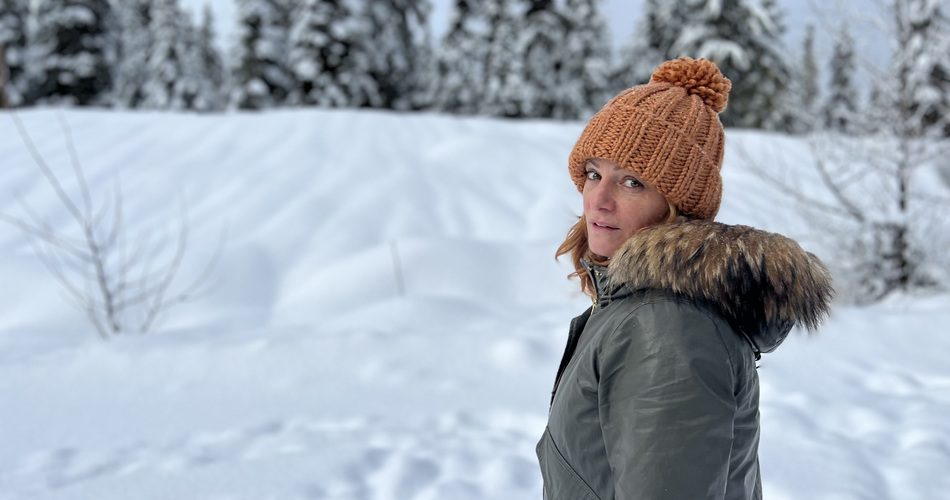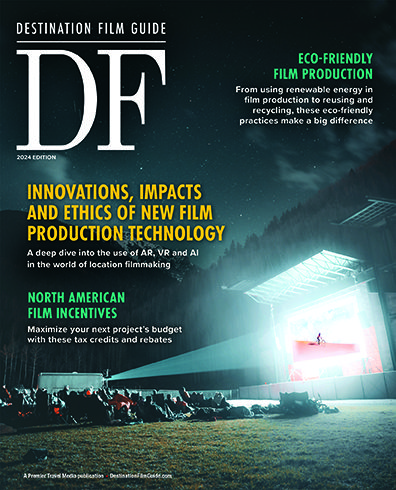With over two decades of experience in the industry, Location Manager Desiree Young discusses the joys, challenges and changes of her job
By Tinder Kiely
Desiree Young broke into the film industry working as a location scout for the beloved show Smallville, while simultaneously finishing up a degree in Communications and Fine Arts, a dual education that she says she still draws from nearly every day. Young has worked as a location manager for the last 10 years, in both South Africa and British Columbia, on a variety of different projects. Some recent notable projects are Julie and The Phantoms, Disney’s soon-to-be-released Goosebumps series, and her current project: Heretic, an A24 horror film starring Hugh Grant.
Do you have a specialty?
My team and I are proud to have the reputation as a great “reset” location crew–we come in to revive a “hot” location or area. It’s a thing. We spend a lot of time in prep doing the research and development that allows for us to truly be effective as a film crew on the ground without stepping on the toes of the location itself, or the adjacent neighbors, who are already hypersensitive from past negative experiences. I love turning a place around back to film-friendly. Let’s face it, what we do is very hard at times, but also very cool most of the time. People should enjoy having us around! Integrity and reputation matter.
Can you walk me through a day in the life as a location manager?
No day is the same, and the arc of each location manager’s day depends on what has come before and what follows. Whatever stage of production that you’re in (prep, shoot, wrap) will certainly be a big consideration for your daily planning and then within whatever stage that is, what creative decisions have or haven’t been made to date. With the above the line peeps, the push is instantly on to land the ‘hero’ locations, then move into the rest of prep with the other departments. That’s a lot of pressure up front on a location manager, who is often working with only the scouts at this point. I try to get up early, take notes of my thoughts as I do a workout, then do all my emails and calls before hitting my commute to the office. It’s nice to be sitting down to answers already while still sipping your cup of coffee.
What do you enjoy most about being a location manager?
I truly appreciate that my work affects the look/feel of a production, that I can see my influence on screen. That sense of creative collaboration, and the autonomy that I have as an LM to achieve the responsibilities of my role combines to a really satisfying working environment. I must add that I love my location’s team. They are wonderful at their individual roles, but we are especially amazing together.
Once a location is approved, what task is first on your list?
Building a relationship with the location, the neighborhood, the local film office. Communication. I quickly bring in all the stakeholders to discuss how we can achieve the production’s goals. The goal is to quickly flush out anything that needs an extra bit of time and/or management. My producers appreciate this, as those costs show up immediately in my preliminary budget, allowing them the grace and time to do their jobs.
What are some of the most important lessons you’ve learned throughout your time working in the industry?
Keep it professional and kind. Use your words wisely. Listen, then ask questions. People are key; make sure that they and their work is felt valued. Smile.
Can you share a few favorite projects you’ve worked on?
I have had the privilege and the responsibility to act as the supervising location manager on several international projects, and the ones that take me to Africa are my favorites. Amazing locations, wonderful crews and such uniqueness.
Can you share an example of needing to adjust your expectations based on a creative or logistical decision?
I am currently working on a series that requires Alaskan wilderness in a big way. Despite extensive options throughout BC’s lower mainland, we weren’t able to satisfy the creative script needs with ‘local’ locations. We as a production had to go back to the drawing board and rethink how we were going to film the second half of our season. Let’s just say that planes will be involved.
How has your profession changed since you started?
Location managers have an ever-growing list of responsibilities, with unfortunately less time to accomplish the tasks. Strong time management and delegation skills are more relevant than ever. The digital world craves immediate gratification, which can be tough to manage when locations are real world.
How have technological advancements affected the locations you manage or how they appear onscreen?
Aside from drones, and managing them (safety, etc.), VFX on site is a new development; we are now doing full body scans of extras in costumes on location, for the VFX team’s future use. Obviously, this is a giant hot topic, and I am as interested as everyone else to see how this will be resolved.
TOP PHOTO: Desiree Young on location in Whistler Olympic Park, BC.
Download the latest issue of Destination Film here.



